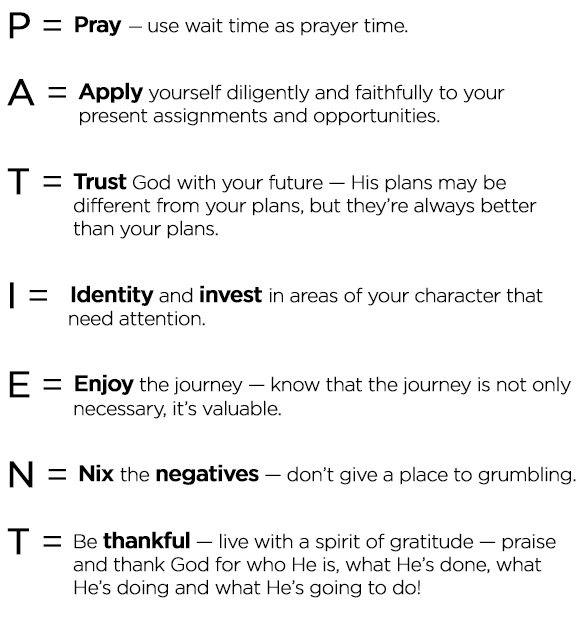Throughout time, people have been intrigued about their tomorrows. Predicting the future is something we continually attempt. From speculations about our personal destiny, to educated guesses about things like the economy, people long to know what’s around the dark, unknown corner of “what will be.”
While it would be wonderful to foresee certain things about your future, the reality is, much of your future is being formed by the decisions you’re making, the priorities you’re pursuing and the activities you’re engaging in today. There are some things ahead that you have no control over. However, there are many things that you have an opportunity to impact. In lots of ways you can positively shape your future. This requires doing the right things now.
What are some of the right things you can do now that will positively impact what’s ahead for you?
1. Give your life to God completely by putting your full faith in Jesus Christ.
But seek first the kingdom of God and His righteousness, and all these things shall be added to you. — Matthew 6:33 (NKJV)
Jesus answered, “I am the way and the truth and the life. No one comes to the Father except through Me.” — John 14:6 (NIV)
For God loved the world so much that He gave His only Son so that anyone who believes in Him shall not perish but have eternal life. — John 3:16 (TLB)
2. Learn everything you can about the way God wants you to live — obey His commands, seek His guidance and follow His wisdom.
Wisdom will multiply your days and add years to your life. If you become wise, you will be the one to benefit. If you scorn wisdom, you will be the one to suffer. — Proverbs 9:11, 12 (NLT)
If any of you lacks wisdom, you should ask God, who gives generously to all without finding fault, and it will be given to you. — James 1:5 (NIV)
3. Trust God and His promises for your life — look for His promises in the Bible and believe them.
“For I know the plans I have for you,” declares the Lord, “plans to prosper you and not to harm you, plans to give you hope and a future.” — Jeremiah 29:11 (NIV)
“Have faith in God,” Jesus answered. — Mark 11:22 (NIV)
4. Refuse to waste time worrying — pray and trust God instead.
Don’t worry about anything; instead, pray about everything; tell God your needs, and don’t forget to thank Him for His answers. If you do this, you will experience God’s peace, which is far more wonderful than the human mind can understand. His peace will keep your thoughts and your hearts quiet and at rest as you trust in Christ Jesus. — Philippians 4:6, 7 (TLB)
Let Him have all your worries and cares, for He is always thinking about you and watching everything that concerns you. — 1 Peter 5:7 (TLB)
5. Get busy serving God and others.
… Whoever wants to become great among you must be your servant, and whoever wants to be first must be slave of all. For even the Son of Man did not come to be served, but to serve, and to give His life as a ransom for many. — Mark 10:43-45 (NIV)
Each of you has received a gift to use to serve others. Be good servants of God’s various gifts of grace. — 1 Peter 4:10 (NCV)
What’s in your future? The road to your tomorrows is paved by the choices you make today. Start fresh preparing a good path for your future!
Pastor Dale
 BTW, if you’re a pastor or part of a church team you’re invited to join us May 19-21 for our United Pastors Network Conference. It’s a great time for inspiration, meeting and making new ministry friends, and growing your ministry skills.
BTW, if you’re a pastor or part of a church team you’re invited to join us May 19-21 for our United Pastors Network Conference. It’s a great time for inspiration, meeting and making new ministry friends, and growing your ministry skills.
For information and registration, checkout unitedpastorsnetwork.com! We hope to see you!




